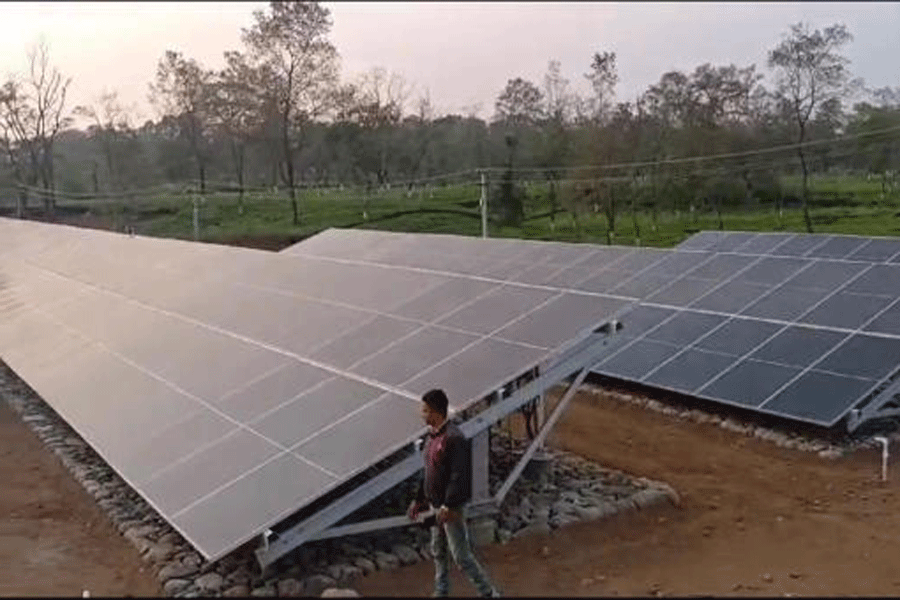For the first time in north Bengal, a tea estate has come up with an elaborate solar power generation plant that produces enough power in the garden for its operations and supplies power to bungalows and quarters across the area.
The Chengmari tea estate in Nagrakata block of Jalpaiguri district is spread over 1,800 hectares. With tea plantations of 1,450 hectares, it is known as the largest tea garden in Asia in terms of plantation. The garden has 5,000 workers.
“We have installed solar panels which can generate adequate power to run the factory, carry out irrigation and ancillary works and also provide power to workers' quarters, employees' residences, bungalows, offices and other similar places. This is the first time that a tea garden in this region has come up with such a large arrangement of solar power,” said garden manager Gajendra Sishodia.
In the garden, 490 solar panels have been installed on a one-hectare plot. The panels can provide 1,040 kilowatt of power. Around Rs 4.5 crore has been spent on the project.
“The panels here are bi-facial, with both sides capable of generating power. The money we spent on the project can be recovered in the next five or six years with a huge dip in our power bills. This money can be spent on garden and worker welfare,” Sishodia added.
In north Bengal, solar panels have been installed in several gardens for water heating and other purposes. But this is the first time that a garden has come up with such a major project to generate non-conventional electricity for multiple uses.
Sources in the garden said that the garden would be able to save around Rs 9 for every unit of power consumed.
“We are now using solar power to run 15 water pumps which are being used to sprinkle water in tea bushes. A primary estimate shows we will be able to save Rs 70 to Rs 80 lakh as power bill by using solar power. This means that our solar power after five or six years will be free. All we need to do is maintain the panels,” said a source.
As of now, 3,500 to 4,000 units of power are generated by the panels every day, which are sent to the factory and supplied to other places in the garden from there.
“The factory is shut now (because of the lean season). Once production starts, we are confident we can run production with solar power,” the source added.
The solar power initiative has drawn praise from tea workers. Ricky Karmakar, the secretary of the Chengmari unit of Trinamul Cha Bagan Sramik Union, hailed it as a major step by the garden management.










